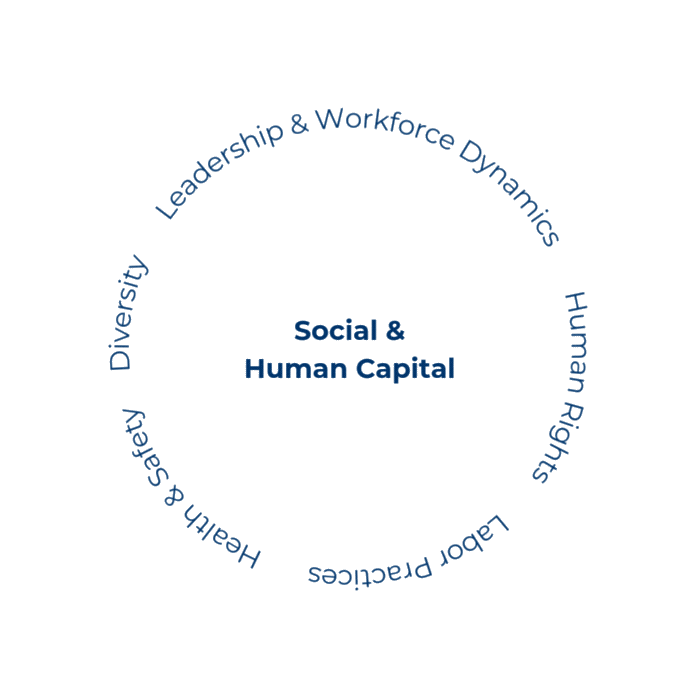Denominator is the global leader in social and human capital data.
We empower businesses and investors to navigate people-related matters across investments, procurement and corporate strategy with confidence and clarity, enabling them to:
- Understand their portfolios and supply chains from a people perspective
- Analyze performance compared to global benchmarks on country and industry level
- Make informed decisions in business strategies; from investments, to procurement and internal efforts
Our database spans millions of public and private companies worldwide, delivering insights into leadership composition, organizational practices, and supply chain risks. It offers a detailed view across organizational levels, from the board and executive team - showing who leads and how diversity is represented - to company-wide policies, targets, and programs on social factors like employee engagement, turnover, and sentiment. It also examines supply chain policies and spending to highlight potential risks and opportunities.
With coverage across 195+ countries and 85+ industries, Denominator provides unmatched granularity on diversity, human rights, health & safety, labor practices, and workforce dynamics - making it the most comprehensive dataset of its kind.
A simple truth: people are the common denominator.




.png)

.png)
.png)

.png)
.png)









